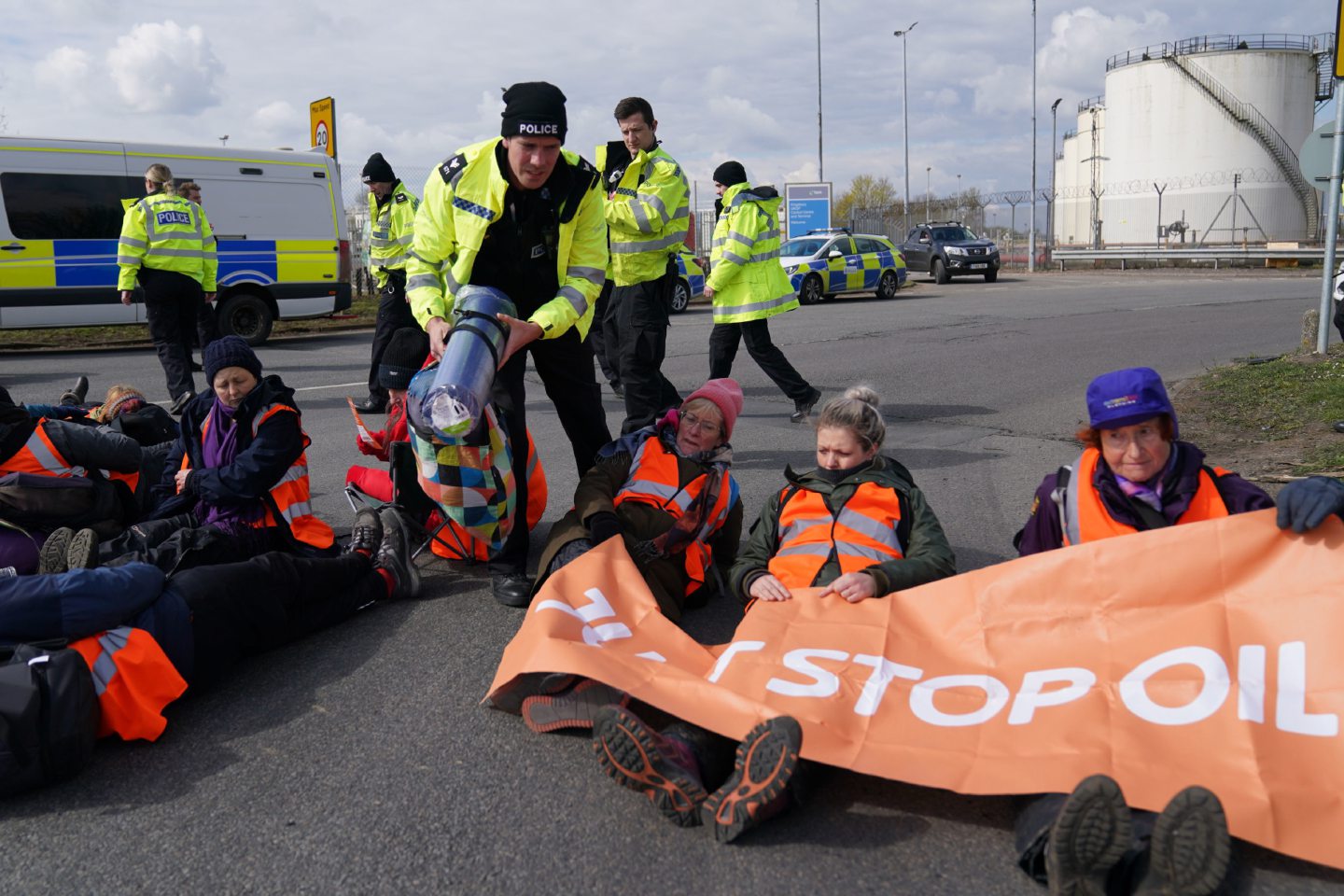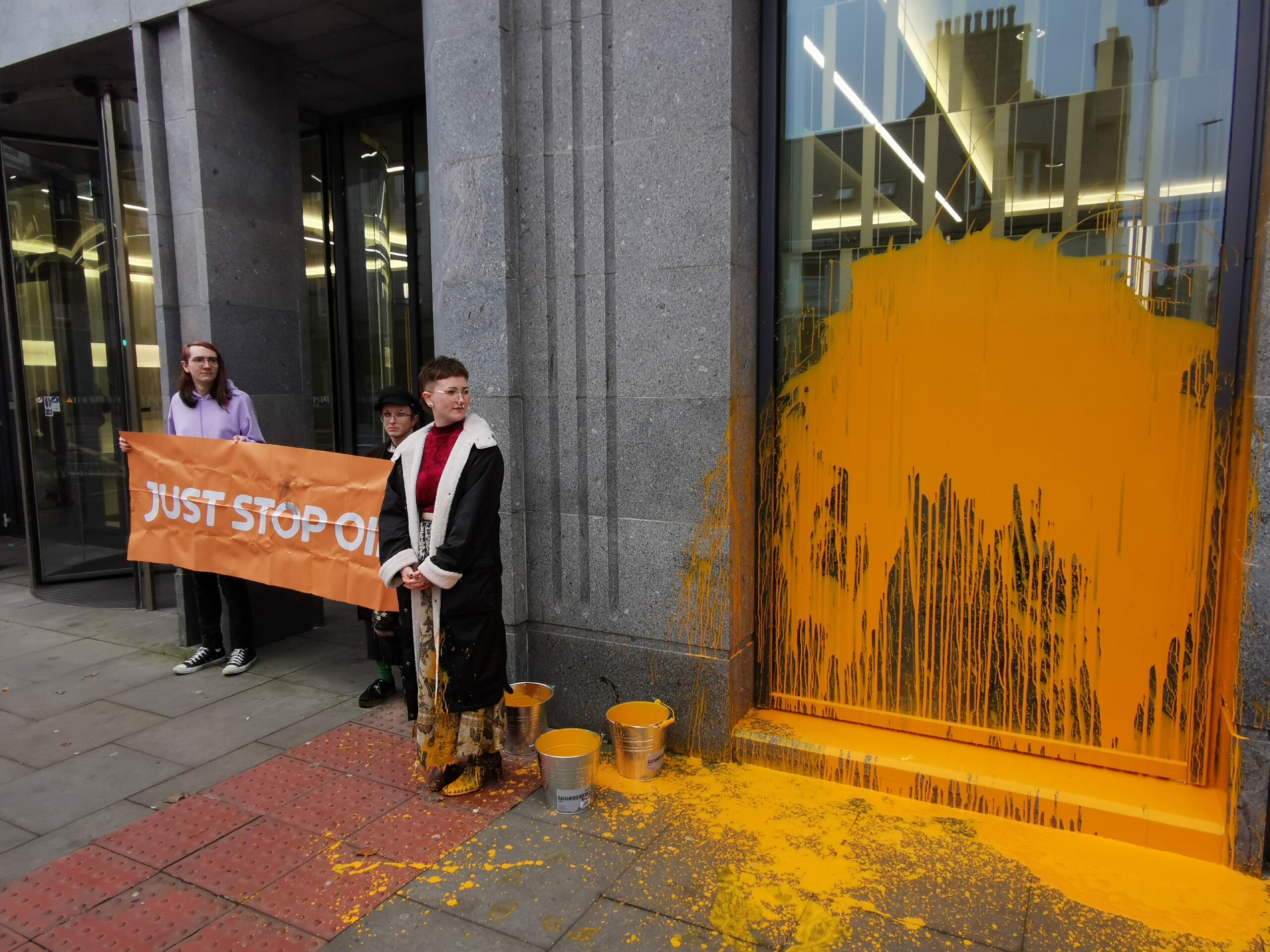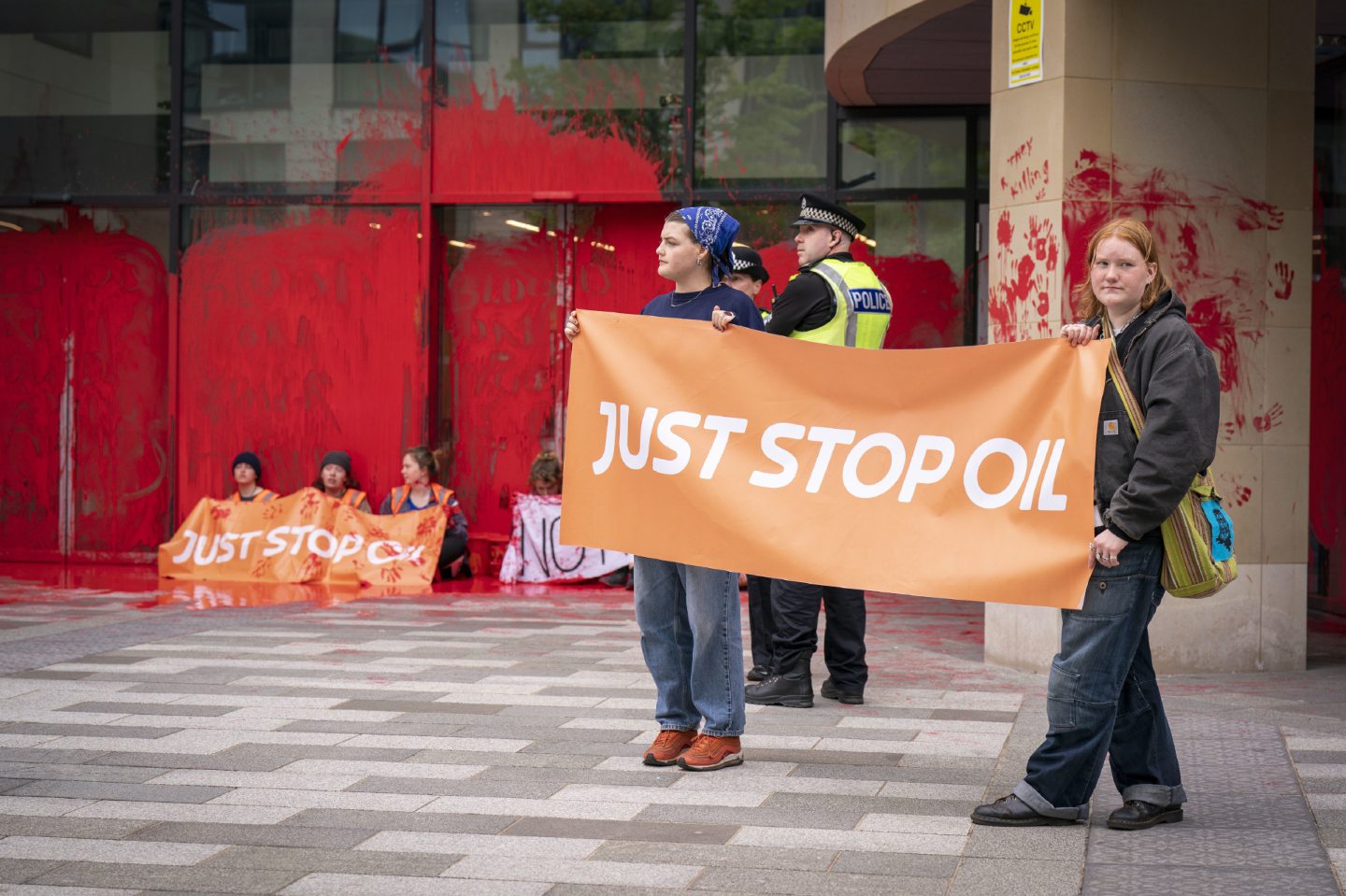
It has become a familiar sight on our TV screens: campaigners for different causes taking direct action to spread their message to the public.
The old methods of complaining to your MP or MSP or writing a letter to your daily newspaper have been replaced, in many cases, by demonstrators engaging in civil disobedience, disrupting major sporting events and targeting arts venues.
Last weekend, more than 100 members of Animal Rising were arrested, following a protest which delayed the start of the Grand National at Aintree. And, just 48 hours later, two members of the environmental group Just Stop Oil sparked commotion at the World Snooker Championship in Sheffield where the traditional green baize was transformed to orange while the audience jeered at the interruption.
Activists from JSO previously threw tomato soup over Vincent van Gogh’s Sunflowers at the National Gallery in London and six of the climate change protesters were spared jail last month after a track invasion which risked “serious harm” to Formula One drivers and marshals during last year’s British Grand Prix at Silverstone.
Mass demonstration
There has been an increase in protest and activism in recent years. And few people doubt the sincerity of the mostly young people who have grown frustrated with the lack of action from governments or multinational companies in tackling what they believe is the principal threat to the future of the planet.
And this weekend, thousands of campaigners are showing support for a mass demonstration The Big One, which will take place in London outside the Houses of Parliament.
It will see Extinction Rebellion – which claims on its website that “civil disobedience works”, Greenpeace, War on Want, PCS Union, NHS Workers Say No, Quakers in Britain, and many others stand side by side to demand an end to the fossil fuel era, with a citizen-led transition.
What should we be talking about?
XR member Yaz Ashmawi said: “This is a hugely significant moment. Never before have we seen this many organisations standing together to demand urgent action on the climate and ecological emergency and a fair and just transition led by citizens.
“While the mainstream media grasp at straws and focus their attention on fabricated plans for disruption during the London Marathon, the real work of building a mass movement impossible for the government to ignore is gaining momentum.
“This is the real story: disrupting the London Marathon isn’t happening, but civilisational collapse is. Which should we be talking about?”
Concerns raised over actions
However, concerns have been raised about the impact of the protesters’ actions with some people questioning whether the problems posed to motorists and employees, when faced with sit-downs on motorways and entrances to work places being covered in glue or paint, actually repels rather than convinces the majority.
North East Scottish Conservative MSP Liam Kerr said: “In our democracy, it is right that members of the public have the right to protest peacefully while causing no harm.
“It is already the case that pretty much every decision at local council, the Scottish Parliament and UK Parliament is scrutinised for its environmental impact. I know from my work in Holyrood that the just transition to net zero is ever present in decision-making. That’s how change happens – we’re all citizens and everyone wants to improve animal welfare, meet the 1.5C climate challenge, get more people using public transport and manage our journey towards net zero.
“Sticking nails in people’s tyres and making a scene at the Crucible isn’t going to move the dial for advocacy in these areas. Dumping tens of thousands of north-east residents out of a job overnight isn’t going to solve the issue of our demand for fossil fuels.
“In fact, behaviour such as this is more likely to turn off large numbers of people who are already convinced by the arguments for change and are already making changes. Others will come on board with incentives, not threats and disruption.
“As we’ve seen in Holyrood recently, boorish heckling is stopping elected members from discussing precisely these kinds of issues as well as asking vitally important questions on behalf of constituents on local issues.”
These people care about the future
It may be a complex issue, but Josh Pizzuto-Pomaco, the news editor at the Aberdeen University newspaper, The Gaudie, told me he can understand both sides.
He said: ‘The actions of groups like Just Stop Oil are disruptive by design and intended to spark media coverage. Throwing orange powder at the World Snooker Championships or soup on a Van Gogh painting won’t stop the government from licensing new oil and gas projects, but it will raise the profile of the campaign.
“This isn’t a secret: Just Stop Oil says as much on their website.
“The question becomes whether or not such actions will inspire people to join these activist groups. I’m not sure that they will. Not all press is good press, despite what some may say. Many in the UK will read about the latest activist ‘stunt’ and simply go on with their day (or write an angry tweet).
“Yet, interviewing a local JSO activist last autumn, I could see that their beliefs were sincere. This activist truly believed the climate was on the verge of collapse, and that their actions played a tangible role in combating the ‘criminal actions’ of the government. There was no malice or hatred in their voice, just passionate conviction.
“So, as long as activists do not endanger public safety, and are willing to face the consequences of their actions, by all means let them protest.
“I would hope our political system is strong enough to tolerate such acts of civil disobedience while ensuring that the public are kept safe.”
‘We must bring people together’
One activist told me off the record that the antics of a few “attention seekers” were proving counter-productive. Extinction Rebellion, meanwhile, is working with race organisers at tomorrow’s London Marathon in a bid to prevent disruption of an event which raises millions of pounds for myriad charities every spring.
Many campaigners recognise there is no value in venting their wrath at the wrong people. Guy Ingerson, the co-convenor of Aberdeen Greens, told me: “For me, direct action should be aimed at those with the ability to act. This includes large corporations and those with political and economic power.
“Civil disobedience and other forms of protest are hugely powerful and the more so when they build popular support. [But] some of the actions we have seen risk alienating those whom we need to take with us.
“The climate and ecological crisis is the biggest threat to our society today, so I understand the frustration which protesters are expressing. However, action must be better targeted. We must bring communities together in taking action and speaking truth to those in power.”
There are no easy answers and the oil protests strike at the heart of the matter. There was massive opposition to the Suffragettes when they embarked on civil disorder to pursue votes for women. But they prevailed, though not without turmoil and tragedy.
How will history judge those fighting to protect the climate?




